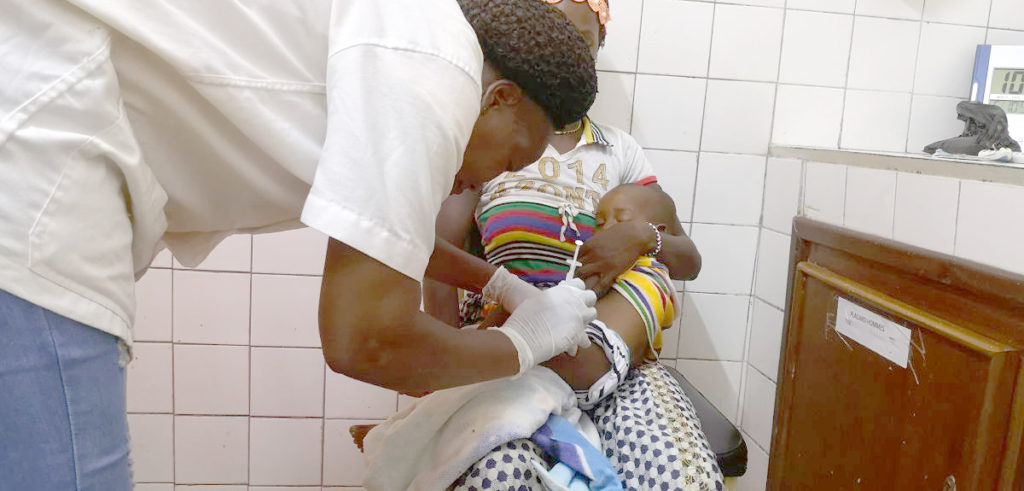Researchers from the University of Oxford and their partners have reported new findings from their Phase 2b trial which tested the effectiveness of a booster dose of their candidate malaria vaccine.

The vaccine, R21/Matrix-M, had previously demonstrated high-level efficacy of 77 percent 12 months after being administered in young West African children in 2021.
In their latest findings, reported in The Lancet Infectious Diseases, they found that a vaccine booster dose one year after the primary three-dose regime maintained high efficacy against malaria, and continued to meet the World Health Organization’s goal of at least 75 percent efficacy.
The randomised, controlled, double-blind trial, which is supported by the NIHR Oxford Biomedical Research Centre, was conducted around Nanoro in Burkina Faso. A total of 450 participants aged five to 17 months were recruited, with 409 receiving the booster.
The participants were randomly assigned to three groups, with the first two groups receiving the R21/Matrix-M vaccine (with either a low dose or high dose of the Matrix-M adjuvant) as a booster and the third a rabies vaccine as the control group.
The researchers reported a vaccine efficacy of 80 percent in the higher-dose adjuvant group, and 70 percent in the lower dose adjuvant group, over 12 months of follow-up. Antibody levels were restored to similar levels as those following the primary vaccinations 28 days after the booster doses were administered.
Co-author on the paper Professor Adrian Hill, Director of the University of Oxford’s Jenner Institute and the Oxford BRC’s Theme Lead for Vaccines, said: “We are delighted to find that a standard four dose immunisation regime can now, for the first time, reach the high efficacy level over two years that has been an aspirational target for malaria vaccines for so many years.”